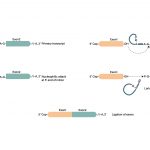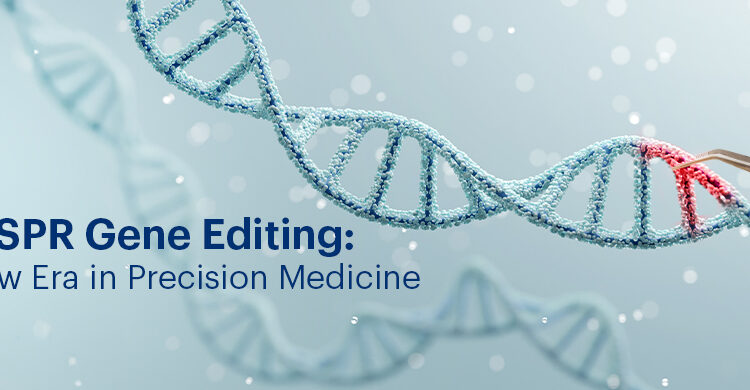Hurler syndrome (also called mucopolysaccharidosis type 1, Hurler variant [MPSIH]), is a genetic disorder that causes abnormal musculoskeletal development, cognitive impairment, and shortened life expectancy.A recent publication reports the early success of a gene therapy treatment in an initial 8 children with Hurler syndrome.
What is Hurler Syndrome?
Hurler syndrome is the most severe form of mucopolysaccharidosis type 1 (MPS1) disease, a rare lysosomal storage disease. Patients with this disease have an autosomal recessive mutation in the IDUA gene, which encodes the enzyme α-L-iduronidase (IDUA). This enzyme is involved in the lysosomal degradation of glycosaminoglycans (GAGs). The absence of the IDUA enzyme causes accumulation of GAG in different organs and tissues.
 Hurler syndrome is a rare, inherited lysosomal storage disease in which the absence of the enzyme α-L-iduronidase results in the accumulation of glycosaminoglycans (GAGs) in the lysosome.
Hurler syndrome is a rare, inherited lysosomal storage disease in which the absence of the enzyme α-L-iduronidase results in the accumulation of glycosaminoglycans (GAGs) in the lysosome.
Clinical Characteristics of Hurler Syndrome
Patients with Hurler syndrome start showing signs and symptoms in their first year of life. These abnormalities are progressive and include developmental and neurocognitive impairment, musculoskeletal impairments such as short stature and facial deformities, heart disease, enlarged organs, respiratory problems, brain atrophy, hearing loss, and vision loss. Without treatment, patients typically die before age ten due to cardiac and respiratory complications.
Treatment for Hurler Syndrome
Enzyme replacement therapy (ERT) using laronidase is a lifelong treatment option for patients with Hurler syndrome. Although it helps with some symptoms, it does not cross the blood-brain barrier and does not help with neurological symptoms.
The standard treatment for Hurler syndrome is allogeneic hematopoietic stem cell transplantation (HSCT). In HSCT, hematopoietic stem cells are provided from a matched donor and infused, after which the donor cells provide a permanent endogenous source of a functioning enzyme.
This treatment increases the patient’s overall survival, especially if provided when the patient is young. It can also preserve cognitive function and improve some of the somatic symptoms. This procedure, however, has several disadvantages, including the requirement for ongoing immunosuppression to prevent graft-versus-host disease.
Autologous Hematopoietic Stem and Progenitor Cells (HSPCs) Gene Therapy
Recent research involving gene therapy using viral vectors as tools to deliver the genetic material ex vivo has shown promising results in several genetic diseases, including lysosomal storage diseases.
The safety and efficacy of gene therapy for the treatment of Hurler disease are under investigation in a clinical trial, and the interim results were published in the New England Journal of Medicine on November 18, 2021. The study is a phase 1-2, nonrandomized, single-center study that includes 8 children with MPSIH.
Hematologic engraftment and correction of blood IDUA activity up to supraphysiologic levels (higher than those in a normal individual) were the primary endpoints. Secondary endpoint included normalization of urinary GAGs and growth velocity; exploratory endpoints included motor and physical assessments.
The children went through chemotherapy conditioning, after which they received autologous hematopoietic stem and progenitor cells (HSPCs) transduced ex vivo with a lentiviral vector that encodes the IDUA enzyme.
Positive results were seen within the first month and were sustained until the last follow-up (median 2.10 years), and the primary endpoints were met. After one year all patients had supraphysiologic blood IDUA activity above the 97.5th percentile of healthy children of the same age.
IDUA in the cerebrospinal fluid (CSF) was detectable in all patients 3 months after treatment. In addition, excretion of GAG in the urine declined in all patients and reached normal or near-normal levels.
Motor skills improved gradually in all patients, and by the last follow-up, 6 of the 8 patients had total motor performance within normal limits or in the low average of normal limits.
This trial follows other recent developments in the gene therapy field, including the approval of treatments that use HSPC. The European Medicines Agency (EMA) approved an ex vivo HSPC gene therapy for the treatment of adenosine deaminase deficiency (ADA-SCID) in May 2016, and in May 2019 it approved another product for the treatment of transfusion-dependent (non-b0/b0) b-thalassemia. In addition, several clinical trials are ongoing in the USA and some of them are in advanced stages.
Longer-term follow-up for the children in the Hurler syndrome study will still be needed to determine whether the benefits last and to ensure long-term safety.
Read also about






